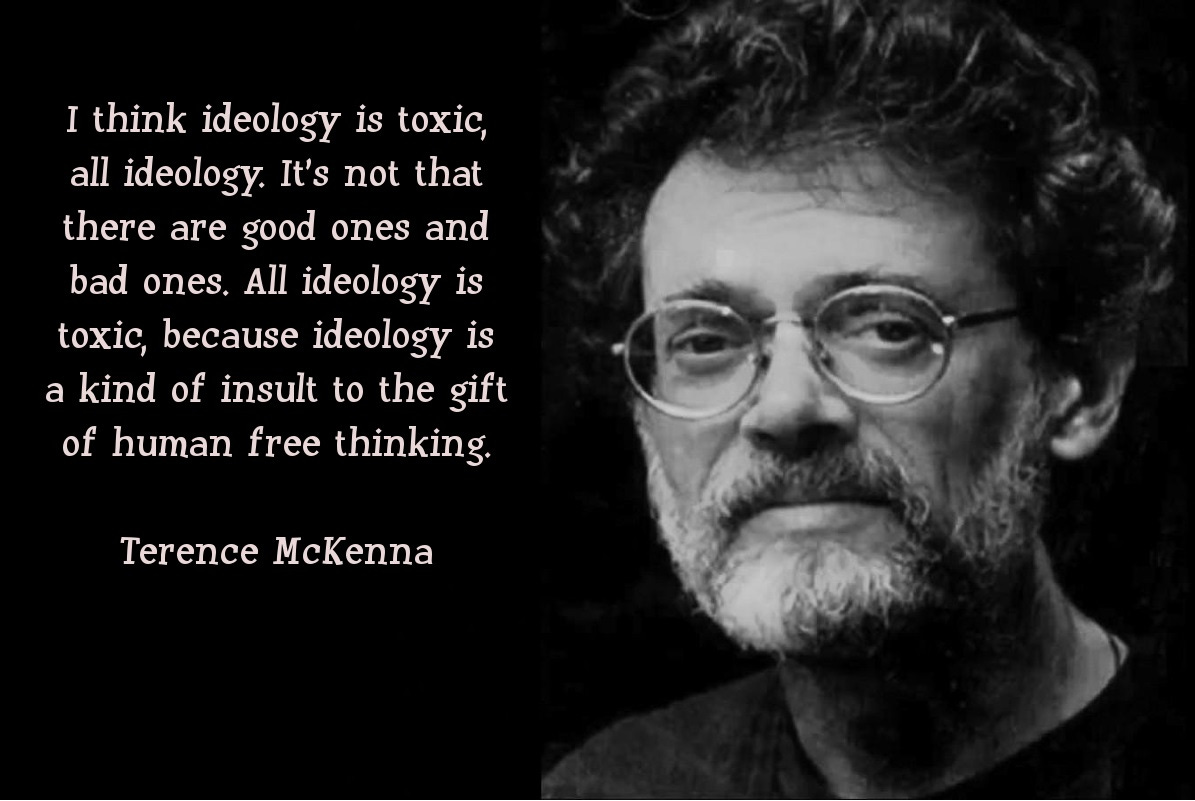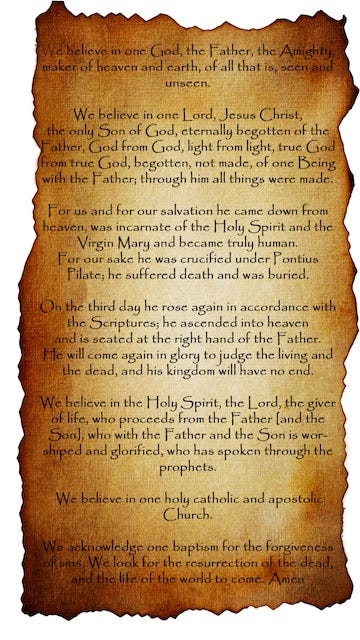Who was Jesus and What Did He Teach?
Understanding The Life and Times of Jesus of Nazareth Through the Lens of Critical Thinking
Immediately after the November 3rd, 2020 Presidential U.S. election, most of us were aware of a long list of unprecedented anomalies that called into question the official narrative. These included:
DJT won 18 of 19 ‘bell-weather’ counties. No candidate has ever won this many bell-weather counties and lost the election.
DJT won Florida, Iowa and Ohio. No presidential candidate has won these three states and lost the presidency since Nixon accomplished that feat in 1960 and by most accounts, that election was stolen from Nixon.
Ballot counting was inexplicably halted in all five swing states (Arizona, Georgia, Pennsylvania, Wisconsin and Michigan) in the middle of the night.
Republican poll-watchers were prohibited from watching polls in major democratic strong holds like Wayne County, MI, Philadelphia, Fulton County, GA and elsewhere.
Statistically impossible vote spikes occurred overnight for Biden
DJT received approximately 90% of the Republican Primary votes. No incumbent candidate has ever received that many primary votes and lost the election.
DJT recognized significant increases over his own 2016 vote tallies within the Hispanic, African American and other minority groups.
DJT carried a record number of counties nationwide.
…this list could easily be tripled but hopefully the point is made here.
Taken in isolation, none of these individual anomalies prove anything, but when you look at them objectively as a whole, most people should at least come to some sort of strong suspicion that something just doesn’t add up here.
Confirmation bias and wishful thinking notwithstanding, the overwhelming about of circumstantial evidence and irregular peculiarities surrounding the entire 2020 Presidential Election process was compelling enough to warrant a much deeper investigation and overall inquisitiveness of what the AF happened. It was basically impossible to reconcile all of these independently verifiable facts and data points with the official narrative that Joe Biden received a record 81 millions votes and thereby won the election.
Many of us, including myself, simultaneously began to do our own research and we also turned to people like Dr. Douglas G. Frank, Seth Keshel, Jovan Hutton Pulitzer, Brian Cates, Jon Herold, Patrick Byrne, Gregg Philips, Catherine Engelbrecht, Patrick Gunnels, Carlos Osweda (aka Thomas Wictor) and others for their in depth analysis and conclusions.
We knew things didn’t add up, we knew that Trump wouldn’t just walk away and allow this overthrow of the United States of America to stand and we were starving for truth and and every little tidbit of information that would clue us in to what was really happening. We wanted answers for how the fraud could be, and would be, constitutionally adjudicated.
It’s really been an extraordinary couple of years. As a community and as a nation, we’ve engaged in a new level of multilateral, collaborative, investigative journalism the likes of which we’ve never seen before. An army of digital soldiers had been created, deployed, unleashed and parachuted in behind enemy lines, reestablishing lines of communications amongst our fellow citizens whiles circumventing the compromised and corrupt landscape of the transnational media apparatus.
It truly has felt like the communication lines of Paul Revere and the early patriots along with the spirit of “One if by land Two if by sea” had once again been reestablished and revitalized.
True American Patriotism is alive and well, in spite of the virtually unspeakable, ubiquitous and oppressive corruption at the highest levels of our government. The reports of the death of the great American experiment have been greatly exaggerated.
What a truly phenomenal time to be alive.
Is The US Constitution Ideological?
If you’re familiar with my work, the underlying theme with my documentary films, podcasts, articles and overall philosophy is that all ideologies are inherently deleterious and are best to be avoided.
To that end, I have often times wondered about whether or not the U.S. Constitution, Bill of Rights, Declaration of Independence, etc. are ideological.
We can consider ideologies to be intellectual blind spots where free thinking is discouraged, just in terms of the specific areas of the assumed knowledge that they are based on. In other words, those core beliefs within each ideology are effectively firewalls where intellectual trespassing is forbidden and questions are not allowed.
We know that our form of government was influenced by noted philosophers such as John Locke as well as Socrates and it seems to me that our fore founders went out of their way to create a Constitution that was free of ideology. Point of fact is that Socrates vocally opposed pure democratic forms of government as they were easily swayed by demagoguery, so rather than pure democracy, we have a Representative Republic with a built-in system of checks and balances to protect the nation from the frailties and shortcomings of our own human nature.
One thing in our Constitution that could be construed as ideological is the inclusion of our “God given rights”, but if you look at the overwhelming evidence that concludes that atheism is itself an ideology, is the concept of God given rights ideological? That’s a rhetorical question, I still don’t know one way or the other.
Biblical Anomalies and Peculiarities
Similar to how we could compile a long list of anomalies and peculiarities about the November 3rd election, we can also compile a long list of anomalies about the bible:
There are many, many contradictions within the bible text itself. These have been very well researched and documented. In other words, in many instances it’s impossible to reconcile specific differences between the four main gospels.
There are four gospels in the bible, Mark, Luke, Matthew and John and Mark is considered to be the “oldest” was thought to have been written 50 years after the crucifixion. In other words, the oldest known copy of a book from the Gospels is of questionable provenance, pedigree and authority.
Fifty years is an awfully long tame of the classic telephone game. The potential for word of mouth errors, interpretation errors, hearsay errors, transcription errors, editorial bias errors, embellishment errors, etc. is massive over a fifty year period. We simply cannot trust or rely on the pedigree of Mark, not to mention the other three which are even further out in time.
Luke and Matthew are considered to be derivatives of Mark.
John is an outlier and is far more consistent with Gnostic Christianity than it is with traditional Christianity (the prologue to John's gospel is certainly consistent with Gnosticism).
Gnostic Christianity is the most closest form of Christianity to Socratic Idealism. *This esoteric form of Christianity known as Gnosticism is also extremely consistent Sufism (the mystical branch of Islam) and Kabbalism (the mystical branch of Judaism). Probably just another coincidence.
There are more translation errors than there are words in the bible.
Far more gospels were excluded than included (e.g. Gospel of Mary, Gospel of John, Gospel of Judas, Gospel of Peter, Gospel of Philip) as well as many other so called ‘apocryphal’ texts.
According to many biblical scholars, Peter I and Peter II were most likely written by different authors, meaning that at least one is a forgery. There are good arguments that both Peter I and Peter II are actually forgeries as Peter was an illiterate fisherman.
Additionally, biblical scholars also consider six of the thirteen books in the bible attributed to Paul to be forgeries.
From the earliest known manuscripts to the New King James Bible and beyond, there appear to be countless different versions of this book.
The Nicene Creed, which was the template from which the Second Council of Nicaea carved out which books belonged in the bible and which didn’t, would properly name The Nicene Ideology. Foundationally the Nicene Creed is one belief after another.
There’s one eighteen year gap that we’re aware of, and some shorter gaps as well.
The classic quote “Let he who is without sin cast the first stone” was probably added in the 4th or 5th centuries. It sounds like something Jesus might have said, but it simply doesn’t exist and any of the manuscripts from the first few hundred years.
In none of the four original, canonical gospels (Mark, Luke, Matthew and John) did Jesus ascend into heaven. That was only added in the 4th or 5th centuries.
Christianity is an irreconcilable outlier compared with all the other major religions, wisdom traditions and spiritual philosophies.
The bible that was a byproduct of the 1st and 2nd Councils of Nicaea (and 300 years of politics, debate, acrimony, subversion and intellectualization) produced the Roman Government’s State Sponsorship of a religion known as Christianity.
Would you trust the United States Government to produce and sponsor a state run religion?
Then why would you trust the Roman Government’s state sponsored religion?
Additionally, as with the above list of November 3rd election anomalies, I’m sure that this list could easily be tripled by knowledgeable experts.
While there may be perfectly reasonable and rational explanations for each and every one of these anomalies, this partial list should still be enough contradictory evidence to cause enough curiosity within the reader to begin to ask more poignant questions and to see if they can confirm some of these individual items to see if they’re true.
Dr. Bart Ehrman
Bart Ehrman is an interesting cat. He was raised Episcopalian in Kansas and became a born-again Christian in high school and was so enamored with his new found evangelistic worldview that he then attended Moody’s Bible College, Wheaton College (where Billy Graham attended) for his masters and finally Princeton Theological Seminary for his PhD.
Along the way, in his thirst for knowledge about all things Jesus, he learned ancient Greek, Aramaic, Hebrew and Latin so that he could do his research and read as many original manuscripts and parchments that he could get his hands on.
However, the more he researched and dug deeper into all the different revisions of the individual books (the four gospels, Paul’s letters, Peter I and II, etc.), the more he realized that there were significant holes and contradictions in the official narrative that he had constructed his academic career and spiritual beliefs on.
This process, in one form or another, resulted in Bart eventually becoming an atheist.
He’s spent the past four decades researching the material and has written many books on the many, many contradictions, forgeries, inconsistencies and exclusions of the Christian Bible:
Misquoting Jesus: The Story Behind Who Changed the Bible and Why
How Jesus Became God: The Exaltation of a Jewish Preacher from Galilee
Did Jesus Exist? The Historical Argument for Jesus of Nazareth
Heaven and Hell: A History of the Afterlife
Forged: Writing in the Name of God--Why the Bible's Authors Are Not Who We Think They Are
Lost Christianities: The Battles for Scripture and the Faiths We Never Knew
The Orthodox Corruption of Scripture: The Effect of Early Christological Controversies on the Text of the New Testament
The Lost Gospel of Judas Iscariot: A New Look at Betrayer and Betrayed
God's Problem: How the Bible Fails to Answer Our Most Important Question--Why We Suffer (**Ehrman claims that his inability to answer this question led directly to his atheism—I personally suspect that it was more like the final straw)
The Triumph of Christianity: How a Forbidden Religion Swept the World
Jesus: Apocalyptic Prophet of the New Millennium
Jesus Before the Gospels: How the Earliest Christians Remembered, Changed, and Invented Their Stories of the Savior
Lost Scriptures: Books that Did Not Make It into the New Testament
Peter, Paul and Mary Magdalene: The Followers of Jesus in History and Legend
Journeys to Heaven and Hell: Tours of the Afterlife in the Early Christian Tradition
Forgery and Counterforgery: The Use of Literary Deceit in Early Christian Polemics
The Bible: A Historical and Literary Introduction
The Apocryphal Gospels: Texts and Translations
You can also find many of his debates and presentations on Youtube and they’re all very compelling. However, he has become just as ideological in his new belief system of atheism as he was with his evangelicalism so bear that in mind if you decide to dig in deeper. In other words, he does have a significant amount of both confirmation and editorial biases so he’s not as objective as he would like to have you believe, but don’t hold that against him. Even if you disregard 80% of his findings due to bias, the remaining 20% is enough for a conviction.
He’s done a tremendous amount of research to back up his arguments and many of his conclusion are difficult to refute and even more challenging to reconcile with commonly held Christian ideas. He undeniably makes a significant number of extremely valid, cogent, salient and poignant arguments regarding the fidelity and authority of the Bible.
I did have him on as a guest on my Dogs and Baskets podcast because of his extensive research, but I found him to be somewhat of a disappointment. If you watch this episode and pay attention you can see that he committed approximately 100 debate violations that should have been stricken from the record:
Applied the logical fallacy of appealing to authority ~15 times
Misquoted me (intentionally or otherwise) ~15 times (so he could pounce on something I didn’t say)
He labeled me as being ideological ~15 times (but when pressed was not able to identify what it was I was ideological about)
Used his ideology to defend his ideology ~60 times (circular logic)
He was ill-prepared to have a debate with me, to say the least. If this was a boxing match, this would have been a TKO in the first round.
As difficult it is to watch this interview (especially that last 30 minutes), it’s an extraordinary example of an ideologicalized mind (Ehrman in this case) and how challenging it can be to have a reasonable conversation with them. In fact, many of you may have experienced virtually identical conversations as this attempting to discuss with liberals how the Nov. 3rd Presidential Election was stolen.
If you remove all of his argumentative points that should have been disqualified based on the above violations, he would have actually had very little to add to the conversation, which is unfortunate as I do find his research invaluable and necessary.
He literally threw out the baby with the bathwater in his conversion from Christianity to atheism but don’t make the same mistake he made in watching this interview by disqualifying all of his research because he’s a materialistic ideologue.
The Nazarene Jigsaw Puzzle
If we look at all the evidence objectively, it would appear that things are just not we thought they were as presented in the Bible. If you can suspend disbelief and be in a place of wonder about the true story of Jesus and who he really was, perhaps we can imagine starting over from scratch to trying to construct a composite image. We could conceivably think of the entire story of the life of Jesus, his teachings and who and what he really was as one large 300 piece jig saw puzzle that we wanted to solve.
How would be go about even starting such a project?
What we have are 27 ‘pieces’ (the 27 books in the new testament), with frayed and burnt edges, other pieces with very faint, faded and water stained images, we’ve got many different variants of those pieces (apocryphal texts, historical documents, artifacts, etc.) , many other pieces have gone missing and some of those puzzle pieces got thrown into the box from completely separate jig saw puzzles (other spiritual traditions, etc.).
Just the same as the November 3rd election, we’d need to draw from different sources and individuals, we would need to do some creative detective work and detailed investigative journalisming (H/T Ben Shapiro for that word) and we’d need to apply some critical thinking to challenge our own fundamental beliefs to guarantee that we remove our own personal biases.
Out of the 27 books of the bible, 8 are considered to be forgeries, two of the gospels are derivatives of Mark, so some consolidation could be in order there; the inclusion of Book of Revelation as part of the life, times and teachings of Jesus is questionable and the pedigree and authority of all the manuscripts is up for debate.
Perhaps the most significant obstacle and most likely the largest in terms of solving this jigsaw puzzle, is the Christian ideology itself. There are several core tenets of this ideology that in and of themselves each present hurdles to overcome. These include the beliefs that:
The Bible is the inerrant word of God
Jesus was uniquely different from all other humans in terms of his inherent Divinity (this was the core debate at Nicaea I)
Jesus was the one and only son of God
Jesus was born of a virgin mother
These core beliefs can be a real deal breaker in terms of attempting to outside the Bible, to understand the Bible. These ideological underpinnings are self-limiting and prevent further investigation (in the identically same way that the ideological underpinnings in Postmodern Science are self limiting and prevent further investigation of metaphysical phenomena).
Are you able to temporarily suspend belief in these four core Christian tenets in order to proceed unraveling this mystery?
Spiritual Roadblocks
Do see now how religious ideologies are potentially antithetical and ultimately harmful to our own spiritual evolution? The circular logic within the core tenets of the Nicene Creed prohibit questioning the veracity of these beliefs and conveniently enough, they simultaneously disallow research of other spiritual traditions to vet whether or not Christianity is what they are telling you it is.
Do you honestly think that a spiritual teacher such as Jesus of Nazareth would actually impose an ideologically on his followers? Does that make any sense? Why would Jesus (or any other Enlightened Master) want to incarcerate his followers in the mental prison of belief?
Hypothetically, what if those four core examples above are simply not true?
What if Jesus was a human, just like the rest of us?
What if his mom got pregnant just like all our moms did with us?
What if we were all sons and daughters of God?
What if the bible is based on truth and contains tremendously profound wisdom but is riddle with falsehoods?
Just observe the mental gymnastics you’re going through right now, just pondering these questions and attempting to reconcile them with your own faith.
This is how ideologies work.
In fact, this is how we are able to recognize ideologies by the brittle rigidity they impose on certain portions of our thought processes. If we were allowed to disregard those four core beliefs and set them to the side, we can synthesize the solution to the above jigsaw puzzle almost effortlessly.
The Christian Ideology
To understand what an an ideology is, an important concept to keep in mind is the French phrase idée reçue. Idée reçue translates to English as received idea, which can be thought of as is a generally held opinion or concept. Think of an idée reçue as a packet of assumed knowledge that is transmitted from one person to the next as fact.
An ideology is an organizational thought system, a hivemind or groupthink, that is built on a foundation of related, underlying beliefs and typically including the core belief that the the ideology itself is beyond reproach.
The Nicene Creed is the epitome of an ideology. When you examine the Creed, it is one line of belief after another (I count about 15 here, give or take):
Virtually all the various forms of Christianity that have branched off in the past 1700 years are all derivatives in one form or another of this root ideology.
I had Patrick Gunnels on recently (after he watched the above Ehrman Dogs and Baskets episode) to discuss Christianity within the context of Ideologies. We did get mired in a semantical impasse, discussing what does and does not define an ideology but it’s a worthwhile conversation. Here is Dogs and Baskets with Gunnels about the Christian Ideology:
The Five Laws of Ideologies
This is a list of five proposed Laws of Ideologies that are consistently observable across the spectrum of ideologies in society
Ideologies are inherently divisive
This is obvious. An ideology segregates between those who accept the assumed knowledge as truth and those who don’t.
One ideology tends to beget and equal and opposite ideology
One could make a case for how ideologies such as Marxism, Postmodern Science and the Hegelian Jihad were all natural cause and effect responses to Christian Ideology and things like the Inquisition.
Ideologies are inherently, circularly self-referential
Ideologues typically use their ideologies, to defend their ideologies (see the Ehrman interview above).
Everywhere we see organizational ideologies we are guaranteed to have institutionalized bigotry (bigotry is defined to be the lack of tolerance for non-like minded thinkers)
Hiveminds hate free thinkers and heretics, by definition, and as such hiveminds use narrative control as a form of self-preservation.
Ideological Systems always Devolve (not only do they stunt evolutionary growth, they eventually become corrupted and regressive)
The assumed knowledge within an Ideology creates an intellectual black hole where real science can’t happen. In other words, ideologies result in a form of functional retardation wherever beliefs are used in place of epistemology.
Ideologues tend to have a propensity to say things like “yeah, but my ideology is the correct ideology, the rest are all wrong”.
New Age? Or Old Age?
There has been a well known resurgence in recent years of designer spirituality available in any number of weekend self-help workshops, New Age books and a boutique cottage industry of personal life coaches, wellness practitioners, mystical shaman, psychics, Reiki masters and self anointed metaphysical adepts.
It would be arrogant for me or anyone else to make a declaration regarding the efficacy of these various practices or whether or not any person on the planet is either beyond or behind me in their own spiritual development and evolution. Who knows? At the same time, I wouldn’t necessarily recommend any of these New Age authors and speakers to turn to help us unravel the mystery of who Jesus actually was.
However, when it comes to trying to understand who and what Jesus was and what he taught, there’s an extraordinary amount of time tested, ancient material and philosophies to draw from to shine a light on alternative perspective of Jesus compared to the official Biblical narrative. In fact, juxtaposed against all of these other traditions presented in all these fine books, Christian Ideology is virtually irreconcilable with all of these. Either all of these ancient traditions and Spiritual Masters were wrong and Nicene Christianity is correct, or perhaps Christianity is the one that needs to be tweaked to remove the requirement of blind acceptance of various idée reçue.
None of these other approaches to mysticism are based on belief, dogma or ideology but rather, they’re based on direct experience.
Light from Light: An Anthology of Christian Mysticism
The Way of Life, According to Laotzu
Socrates, Buddha, Confucius, Jesus: From The Great Philosophers, Vol. 1
How to Think Like a Roman Emperor: The Stoic Philosophy of Marcus Aurelius
I Am That: Talks with Sri Nisargadatta Maharaj
The Essential Rumi: (Mystical Islam)
Autobiography of a Yogi (Steve Jobs gifted this book to everyone he knew)
The Tao of Physics: An Exploration of the Parallels Between Modern Physics and Eastern Mysticism
The Holy Vedas ; Rig Veda, Yajur Veda, Sama Veda, Atharva Veda
The Kabbalistic Tradition: An Anthology of Jewish Mysticism
There’s enough reading material in these books to take many years to read. None of them should be considered a threat to the teachings of Jesus and in fact, they should only serve to reinforce your faith. It may behoove you however, to consider distinguishing your Christian Faith, from your Christian Ideology.
Piecing It All Together
When we look at all of the anomalies, contractions, inconsistencies of the bible and we objectively examine all the historical evidence of which books went into the bible and why, it should be apparent to most open minded people that there is as much just cause to question the pedigree of the Bible as there was to question the legitimacy of the 2020 Presidential Election.
Similar to how we were able to do a forensic analysis of the election, we can do a forensic analysis to determine who and what Jesus was.
We can bring in wisdom, philosophies, practices and concepts from all the various traditions and begin the process of separating the wheat from the chaff in terms of which passages in the Bible are more likely to be authentic and which are not. We could corroborate that information scientifically with Quantum Mechanical Theory and research into human consciousness and begin to build a much more robust paradigm from which to comprehend the teachings of Jesus.
By some estimates, by 300 A.D., there were around 300 unique and different strands or dialects under the Christian umbrella and this new religion was spreading exponentially throughout the Roman Empire. Getting a handle on this phenomena and exerting control over it became a priority for Emperor Constantine as it was coming more and more apparent that crafting and maintaining the Christian narrative was becoming essential for his ability to govern.
The ideologicalization of Christianity was the ideal solution as it created a perfect control mechanism that used institutionalized intolerance for non-like minded thinkers. Heretics could not and would not be tolerated. If you don’t think correctly, you will be exiled. The word catholic means universal and with the weight of the Roman Army behind it, this new Roman Catholic Church was created and was decisively able to put down any spiritual insurrectionists.
Ideologies are easy to identify when it’s someone else’s, but most people have a hard time recognizing the personal mental penitentiary that they’ve enslaved themselves in.
The ultimate liberation is being freed from all ideologies.
Happy Independence Day!!
Beyond Belief
I dropped this vid about ten years ago. It makes a compelling case for how Jesus probably spent around 80 years in India. Enjoy.













